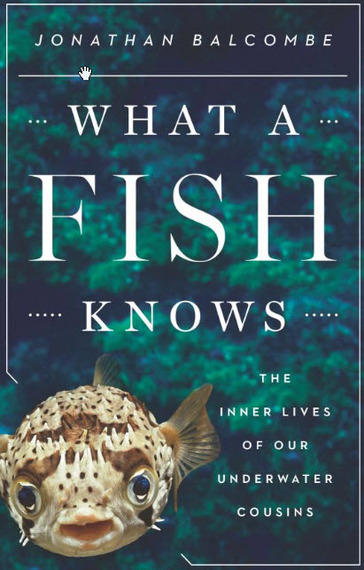
When my first daughter was about six years old, I took her fishing for the first time in a small pond near Amherst, Massachusetts. I bought two fishing rods from a local K-Mart and headed to a nearby pond with her. I read all of the fishing rod instructions and followed the entire procedure carefully, but baiting the hook with worms seemed harder than solving a differential equation. A friendly neighbor saw my struggle and helped me out.
Our first catch was a small sunfish. As soon as we got it out of the pond, it all got very messy: the fish was writhing in pain. I didn't know how to remove the hook and release the fish safely. As a result, the fish died. We spent some more time there catching and releasing different fishes.
I didn't enjoy my first fishing experience at all--and my daughter hated it. Though she was only six, she said to me very clearly in her sweet but firm voice, "Dad, I don't want to fish anymore." That was our last fishing trip. My child knew intuitively that the fish were suffering.
Interestingly, 20 years later, she was the one who asked to me read this book. What A Fish Knows: The Inner Lives of Our Underwater Cousins by Jonathan Balcombe is of the most enlightening books I have ever read, and the one that made me view the world of fish with respect, humility and astonishment.
Do you know that fishes perceive optical illusions just like us? Do you know that they can actually learn certain skills faster than a four-year old child or an adult chimpanzee can? Do you know that fishes can feel fear?
We never think about fishes like other animals. Although we humans, mammals, birds and fishes are all vertebrates sharing a backbone that supports the body and the head, the human skeleton has much more in common with animals than fish. We can recognize the skull, forelimbs, hind limbs and many other features in our animal cousins, but not in fishes. Perhaps these are some of the reasons why we do not think about fishes as our distant cousins, and treat them as organisms without feelings when we catch and eat them. Of course, fishes can't scream in pain. "Crying out in pain is as ineffective for a fish in air as crying out in pain is for us when we are submerged," says Balcombe, who is the voice for our voiceless underwater cousins.
Crying out in pain is as ineffective for a fish in air as crying out in pain is for us when we are submerged - Jonathan Balcomb
What a Fish Knows will change the way you view fishes and their world. After reading it, you won't be the same person. In writing this book, Balcombe did not venture into the realm of speculation and did not let his emotions cloud his writing. He based his arguments on decades of research and relies on science and facts, while engaging the reader with anecdotes and stories. The book is organized into thoughtful, logical chapters: "What a Fish Perceives," "What a Fish Feels," "What a Fish Thinks," "What a Fish Knows," and "How a Fish Breeds. The book, in vivid terms, explains fishes' social life, playfulness, mastery in the use of tools, symbiotic relationship with other underwater creatures, sex-changing behaviors, and much more. You will be amazed to find that fishes have great memory, as well as unique personalities. The lives of our underwater cousins are very rich and full of surprises.
Fishes don't have eyelids, and their eyes are always open. Our eyes are shut tight when it comes to fishes. This book will open your eyes and show a glimpse of their world.
Fishes don't have eyelids, and their eyes are always open. Our eyes are shut tight when it comes to fishes. This book will open your eyes, show a glimpse of their world, and teach you a lot more than what you will ever learn about fishes from any other resource in your lifetime. Read this book. You won't look at a fish the same way again. You may never even want to catch or eat one again.
Thanks for reading! If you enjoy this blog please share it with your friends!
